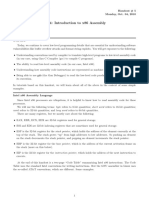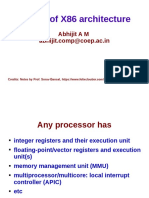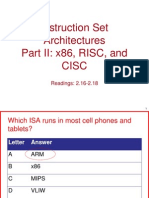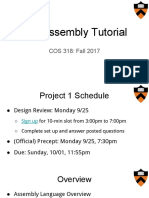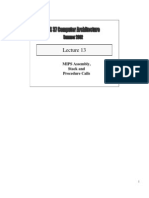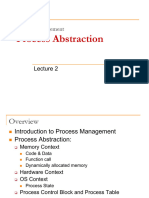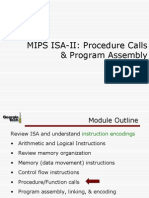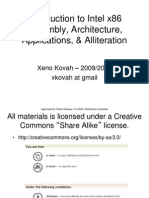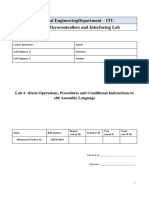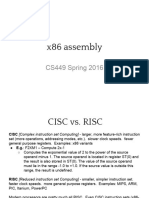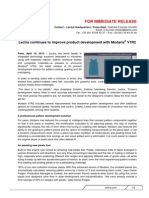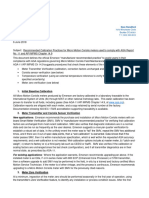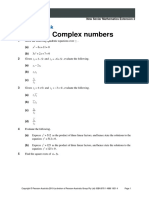0% found this document useful (0 votes)
62 views70 pages0x32 FunctionCallConvention
The document discusses function call conventions on Intel architecture. It explains that functions use a stack to store metadata like the saved instruction pointer (SIP) and saved frame pointer (SFP). When a function is called, its arguments and return address are pushed onto the stack. The function then sets up its own stack frame by moving the base pointer (EBP) before accessing local variables and arguments relative to EBP.
Uploaded by
AhmedCopyright
© © All Rights Reserved
We take content rights seriously. If you suspect this is your content, claim it here.
Available Formats
Download as PDF, TXT or read online on Scribd
0% found this document useful (0 votes)
62 views70 pages0x32 FunctionCallConvention
The document discusses function call conventions on Intel architecture. It explains that functions use a stack to store metadata like the saved instruction pointer (SIP) and saved frame pointer (SFP). When a function is called, its arguments and return address are pushed onto the stack. The function then sets up its own stack frame by moving the base pointer (EBP) before accessing local variables and arguments relative to EBP.
Uploaded by
AhmedCopyright
© © All Rights Reserved
We take content rights seriously. If you suspect this is your content, claim it here.
Available Formats
Download as PDF, TXT or read online on Scribd
/ 70


